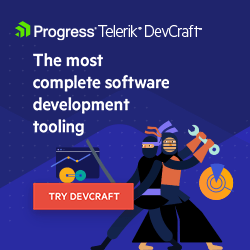Getting What You Want (or Something Like It): Negotiating for Techies

Summarize with AI:
Negotiating effectively means building your options, knowing your partner’s pie and understanding your BATNA—all things that you can nail down before you start.
My story: I asked my boss to have our company buy a great piece of software that I wanted.
There are many things wrong with this story, all of which ensured that I wouldn’t get what I wanted. Here’s the first: I asked for just one thing.
Your Position
When you ask for one thing, you’re limited to a binary result: You either get it, or you don’t. And, if “getting what you want” involves cost or effort on the part of the person who’s giving it … well, then the odds of you getting what you want are considerably less than 50/50. Sorry about that.
So, first, what I should have done (and what you want to do) is to go into the negotiation with a “position.” A position is a list of options that, in some combination, will make you happy. Your goal is—along with whomever you’re negotiating with—to put together a package of those options (and any other options that come up during negotiations) that gives you something you want.
There were, in fact, any number of things that my boss could have provided me with that would have made my life better … but since I didn’t ask about them, they weren’t on the table. As a technical expert who’s good at finding options, exploring possibilities and putting together solutions, I let myself down.
And that was just my first mistake.
Engagement
My next failure: I didn’t talk about what mattered to my boss. Instead, I talked at great length about the technical merits of the software I wanted, which my boss deeply, passionately didn’t care about. Because I didn’t talk about what mattered to him, there was literally no reason for him to say “Yes” (or even to carry on the conversation).
In a negotiation, everyone has to feel that they came out “ahead”: Everyone has to feel that they gained more than they gave up. Fortunately (and precisely because the other person isn’t like you), there are things the other person can give you that you value highly and they value less.
There are a couple of pie analogies here, but one of them is this: People in a negotiation are not sharing the same pie. The piece of pie they get from you looks much bigger to them then the piece they’re giving to you. And the same is true for you.
But the reason I bring up the pie analogy is that, to actually engage with your negotiating partner, you have to talk to them about their pie. Effective negotiating isn’t about knowing about what you want—it’s about knowing what the other person wants. Then you can show them 1) how they can have something they want, and 2) how they can get it by giving up something they don’t want as much.
In my story, as someone whose skillset includes exploring and understanding complex domains, I had failed to do the work to understand the problem domain. And it wasn’t that complex a domain: If I had this new software, then I could offer my boss earlier delivery on the various software applications I was working on (and less downtime when we had failures). My boss valued those things a lot more than he valued hoarding our company’s money.
And I would be giving up something too, of course: the time required to master this software. But, to be honest, that sounded like fun to me.
There Are No Failed Negotiations
Will these strategies get you everything you want? Realistically, probably not. But you will get something more than you had before you started the negotiation. To quote Ginny Slade’s advice to Joanie Caucus (in G. B. Trudeau’s Doonesbury): “Ask for May, settle for June.”
Except Ginny is wrong—this isn’t “settling.” Instead, it’s what we mean by “win-win”: Everybody involved gets something they value and, in return, gives up something they value less. If that isn’t true—if some party to the negotiation feels they gave up more than they got—then that person will be actively working to get out of or otherwise sabotage the agreement.
So that means that, sometimes, your negotiation won’t reach an agreement—that’s not a “failed” negotiation, though. Negotiation isn’t just a way of reaching an agreement. It’s also a way of finding out that, sometimes, no agreement is possible. As a technical person, I know that code that works but that I can’t maintain is bad code. Similarly, a “failed” negotiation is an agreement that my partners are actively trying to get out of.
Walking Away
Since not all negotiations lead to an agreement, before you start you need to know your BATNA: your Best Alternative To a Negotiated Agreement. A BATNA is what you can get without negotiating (for example, by negotiating with someone else, starting a legal action, whatever). Roger Fisher, William L. Ury and Bruce Patton coined BATNA in their classic book on negotiation, “Getting to Yes” (published 30 years ago and never out of print since).
You need to be aware of what your BATNA is because it’s your “walk away point.” If you accept some result that’s less than your BATNA … well, then you have “settled” and you could have done better. To put it another way, your BATNA is the benchmark you’re trying to improve on.
In fact, before you start negotiating you should be actively working to improve your BATNA. It’s possible that you can get what you want (or something like it) without going into a negotiation at all. I was, for example, building software that would make my life easier (I actually ended up finishing one: a report generator for the hierarchical database we were using).
But you should also try to figure out what your negotiating partner’s BATNA is. When you can’t come to an agreement with the other person, the most likely reason is that you haven’t offered something better than their BATNA. If you can’t do better than your partner’s BATNA, then there’s no point in starting the negotiation. For example, I knew there was some software it wasn’t worth asking for because those tools would cost far more than my boss would ever be willing to pay.
And it’s also not unusual for the other person to not have considered their BATNA (this is frequently the case with people who feel that their job is to say “No”). Amazingly, some people don’t realize that their BATNA is worse than what they can get from negotiating with you. It can be worthwhile to point out that you’re offering your partner a chance to get (from their point of view) more pie.
My Story and Your Story
As for my story? I went back and started a conversation with my boss about what we could to do to improve application delivery with better, reasonably priced tooling. I did, in the end, get what I wanted (or something very much like it).
And there’s nothing stopping you from doing the same. In thanks for this strategic advice, you can send $5.00 to peter.vogel@phvis.com. You don’t want to do that? Well, we’ve only discussed strategy and you might be interested in the tactics that can improve your chances of success during a negotiation. I won’t do that for $5.00, but if you can find more money or if we can find enough people to do a webinar or if we can get Telerik to pay for an article on the topic or …
Let’s talk.

Peter Vogel
Peter Vogel is both the author of the Coding Azure series and the instructor for Coding Azure in the Classroom. Peter’s company provides full-stack development from UX design through object modeling to database design. Peter holds multiple certifications in Azure administration, architecture, development and security and is a Microsoft Certified Trainer.

